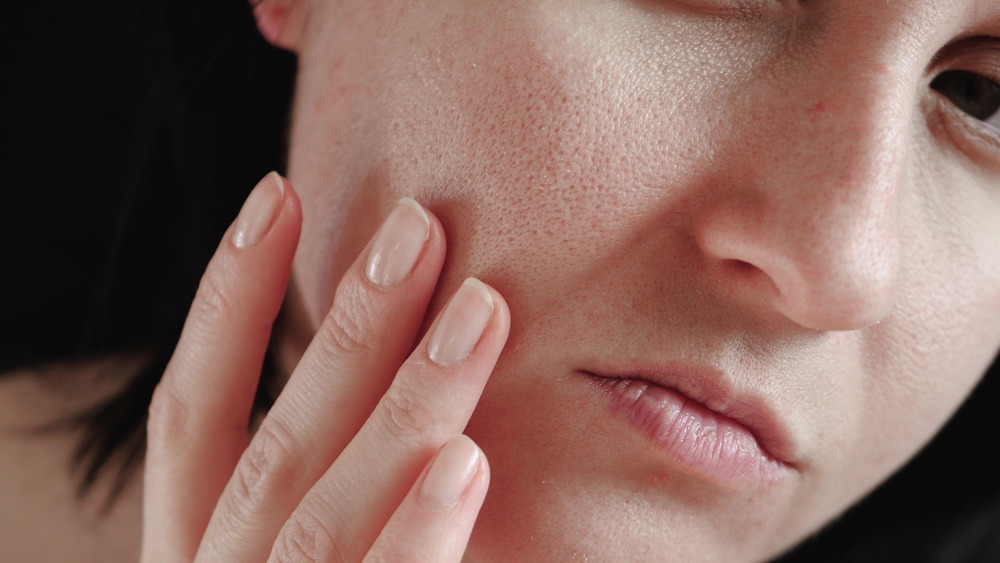What Really Happens When Kissing Gives You 'Beard Burn'
Men with beards have been growing more and more desirous over the last several years. It's almost as though beards have their own mystical powers and exude masculinity and power, becoming nearly irresistible. While they may pique your interest, there is one downside — the dreaded "beard burn." The nearly identical sibling to "stache rash," beard burn actually refers the skin irritation that occurs as a result of a particularly heavy make-out session with a bearded beau.
This type of "burn" is actually a form of irritant contact dermatitis and occurs from friction produced between one person's facial hair and another's fresh-faced skin (via Medical News Today). That friction then leaves the skin red, hot, dry, and itchy. In more severe cases, parts of your face can actually become slightly swollen and painful.
If you're wondering if there is one form of facial hair which is more damaging than others you're on the right track. Owen Kramer M.D., a dermatology resident at the University of Illinois, told Healthline that stubble, or that growing five-o'clock shadow, is more likely to cause beard burn than longer facial hair. This is because stubble consists of short, coarser hair which is more likely to irritate their partners' skin and even their lips. It is important to note also that while beard burn is most common on the face, it can occur anywhere on the body where you are being passionately kissed.
Treatment of beard burn
Here are a few things you can do to help ease the discomfort caused by beard burn.
For beard burn occurring anywhere on the body, it is important to keep the affected area clean. Any cuts or openings of the skin can leave you susceptible to infection or even STDs.
For irritation on the face, Dr. Kramer recommends using gentle, oil-free moisturizers. If the skin is more inflamed, a topical hydrocortisone will help reduce inflammation, redness, and itching.
For irritation in your nether regions, Dr. Kramer recommends using petroleum jelly to decrease irritation. He goes on to say, "The biggest thing to be concerned about is if you get breaks in the skin, then I would be worried about the transmission of sexually transmitted infections such as HIV, herpes, or syphilis." If symptoms do not heal with conservative at-home treatments, a visit to your medical provider is recommended.


